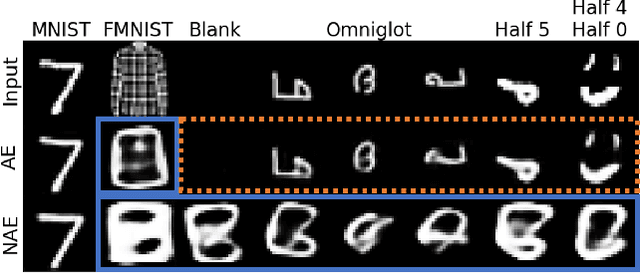Autoencoding Under Normalization Constraints
Paper and Code
May 12, 2021



Likelihood is a standard estimate for outlier detection. The specific role of the normalization constraint is to ensure that the out-of-distribution (OOD) regime has a small likelihood when samples are learned using maximum likelihood. Because autoencoders do not possess such a process of normalization, they often fail to recognize outliers even when they are obviously OOD. We propose the Normalized Autoencoder (NAE), a normalized probabilistic model constructed from an autoencoder. The probability density of NAE is defined using the reconstruction error of an autoencoder, which is differently defined in the conventional energy-based model. In our model, normalization is enforced by suppressing the reconstruction of negative samples, significantly improving the outlier detection performance. Our experimental results confirm the efficacy of NAE, both in detecting outliers and in generating in-distribution samples.
 Add to Chrome
Add to Chrome Add to Firefox
Add to Firefox Add to Edge
Add to Edge